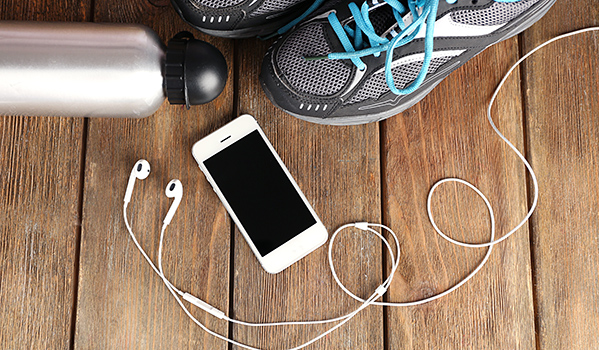
Staying physically active is one of the best things you can do for your health. Apart from the benefit of keeping many non-communicable diseases at bay, you also improve your productivity at work. However, anyone who has tried to establish a workout regimen knows that it is not easy. And thus, getting any support you can get is invaluable. This support may come in the form of smartphone exercise apps. But are they effective?
Do smartphone exercise apps actually work?
More than 50% of Americans have a smartphone and of that number, approximately 50% have an exercise app installed. Simply having an exercise app installed however does not mean it will be used or used effectively. It is just like having gardening tools: a shovel, a pair of gardening scissors and a watering can are all essential to have a beautiful garden. Simply possessing them however will not make you a great gardener. So the answer to our question above is: yes smartphone exercise apps do work- but only if you’re willing to work with them. In this post, we will go over how you can make key behavioral changes that will help you get the most out of your smartphone exercise apps.
Five ways to get the most out of your smartphone exercise app
1. Start small
Most people who want to start exercising overburden themselves with complex exercise routines because they feel this is what is going to get them the results they are looking for. However, psychological studies have shown that having too many overambitious choices makes decision-making difficult and keeps people from executing. You don’t want to get to this point. Setting small and realistic fitness goals, at least in the very beginning, is a better approach you’re more likely to follow. You can start with something as little as walking 30 minutes every day. Once you are done with that for the day, track it in your app. And as a matter of fact, a number of exercise apps will track your steps passively as you go through the day. As you continue to track small wins daily, you will be motivated to do more.
2. Schedule your workouts
For most people, if an event does not exist on their calendar, it is likely they will not go through with it. Having a system for your workouts- even if it is as simple as taking a 30-minute walk daily will improve your chances of sticking to your exercise regimen. You can use your exercise app to set an alarm that reminds you to work out.
3. Have an accountability partner
Having someone you are accountable to makes it more likely that you will execute a plan. Do you have a spouse, relative or friend who you can count on to keep you accountable with your fitness goals? Get them on board! In fact, some exercise apps have included a choice to join Facebook communities and online forums as a way to support users and encourage accountability. It is a well-known fact that your behavior is influenced by the communities you actively participate in. Thus, having an accountability partner or a support group who cheers you on could be your answer to using a smartphone exercise app effectively.
4. Build fun into the process
Exercising is tough. This is especially true if it is a new habit you’re trying to build. One helpful way to build a habit is to build fun into the process. Perhaps running is not your thing but dancing is. You can use your exercise app to design dance routines that work for you. Perhaps on your daily walk, there is a spot where you like to sit and muse in ways that bring you a lot of inner satisfaction. Noting and intentionally enjoying the fun aspects of your exercise regimen is more likely to keep you on the course.
5. Celebrate wins along the way
Popular television shows that show how somebody lost 100 pounds in 8 weeks are motivating and damaging at the same time. While it is fantastic that people can lose that much weight in a matter of months, this is not the norm neither is it particularly advisable. Intense workouts will definitely help you lose weight fast, but it is not sustainable. Thus, no matter what exercise app you’re leaning on for support, it is important to take stock of the small wins along the way. A small win might be that since you started taking 30-minute daily walks, your sense of mental well-being has greatly improved. You no longer feel sluggish and sleepy at work because of this simple work-out. That is a win you should absolutely celebrate.
Closing Thoughts
Smartphone exercise apps work but not without your involvement. The effectiveness of any one app will depend on your behavior and level of commitment. In this post, we have looked at five behavioral tweaks you can make so that you get the most out of your smartphone exercise app.

